The war that broke out in April 2023 between the Sudanese Army and the Rapid Support Forces has become a major factor in deepening the social and economic challenges in the country. The Sudanese economy has suffered from structural crises for decades, manifested in inflation, weak production, the deterioration of the local currency, and the withdrawal of capital from local markets due to weak economic policies that relied on oil exports without diversifying income sources.
This has made the Sudanese economy fragile and unsustainable, and investment laws have failed due to political instability, inefficient infrastructure, and the lack of incentives for investors. Now, Sudan finds itself facing an even greater obstacle, with inflation reaching inflation reaching 218% in August 2024, compared to 83% in January 2023, and the value of the Sudanese pound fell to 3,000 pounds against the dollar. According to recently published International Monetary Fund forecasts, Sudan's inflation rate is expected to reach approximately 119%, making it the highest among Arab countries.
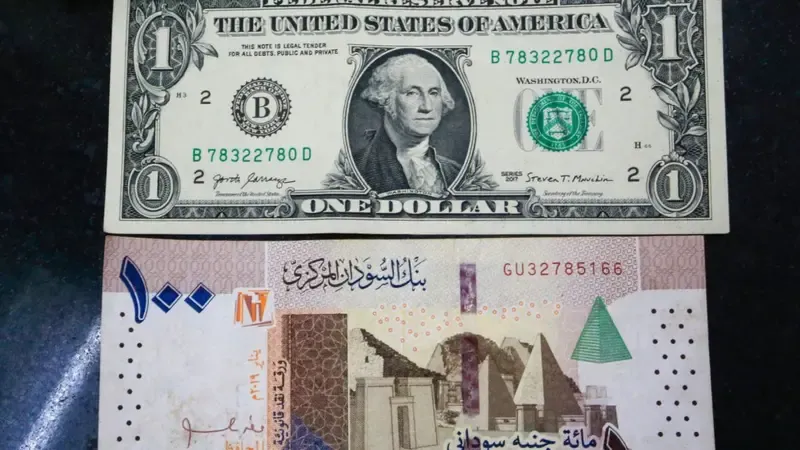
Inflation of the Sudanese pound against the dollar. Source: BBC News
Omdur Aman (Omdurman is safe a secure)
The city of Omdurman, located to the west of Sudan’s capital, Khartoum, is characterized by its traditional craftsmanship and simple national industries. It is famous for its popular markets, such as the Omdurman Grand Market and the Libya Market located to the west of the city, in addition to Al-Shaabi market. The city's economy heavily relies on the informal sector, which includes handicrafts and simple trade, with significant participation from women in these areas. The Omdurman Grand Market used to feature a section called the "Women's Market," which was a wide street mainly consisting of women selling handmade products such as palm leaves baskets, "Al-Tabaq"(Sudanese food tray covers) also made from palm leaves, and "Mufaraka" (a wooden stick made for stirring food) along with food products like "Dakwa" (peanut butter) and "Weaka" (dried and ground okra), as well as Sudanese perfumes and incense.
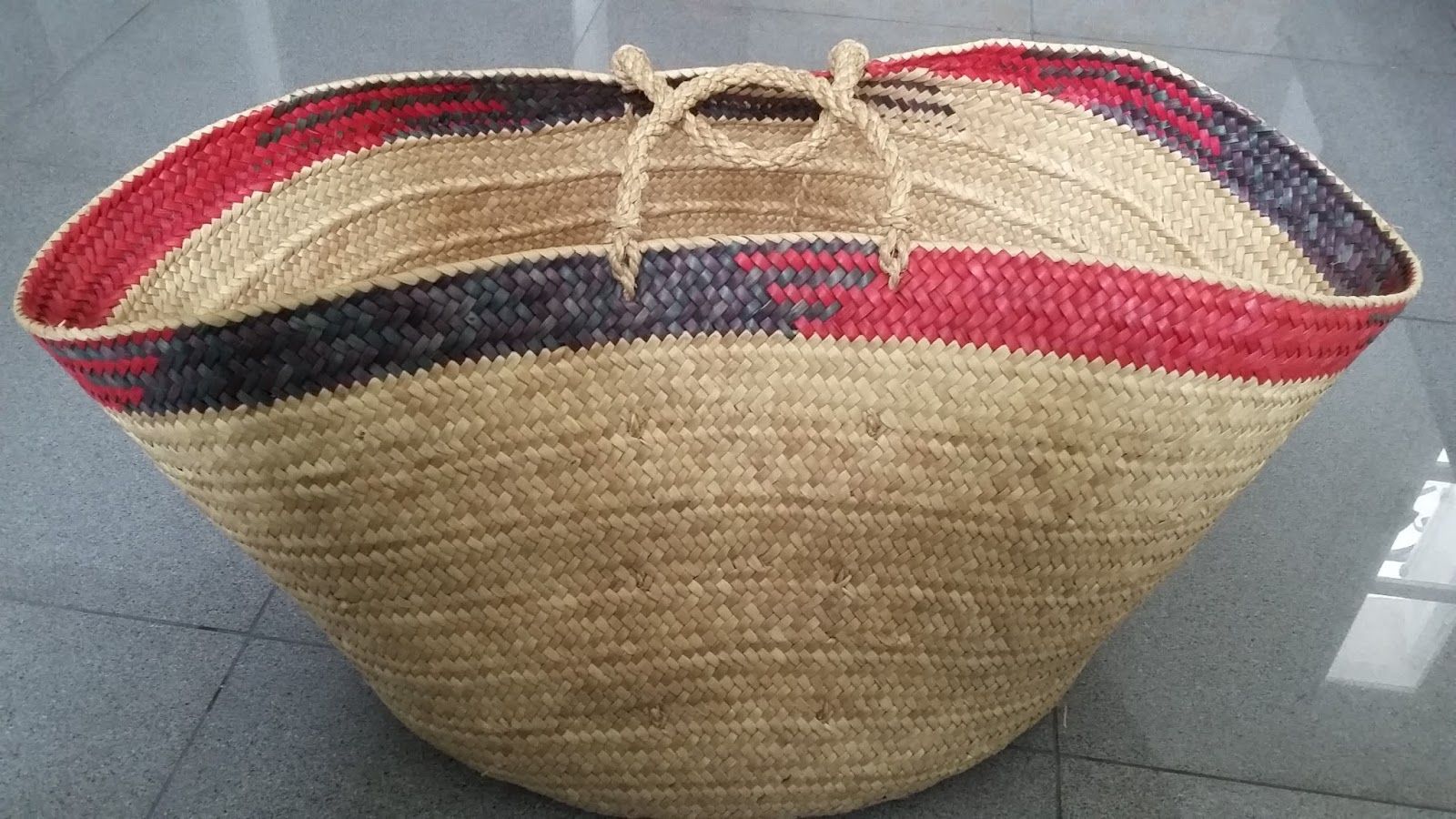
Palm leaves basket. Source: Sudafax
Women in Omdurman play an important economic role, especially during times of war, as they are responsible for supporting their families through jobs that fall under the umbrella of the informal economy. This increasing role of women during wartime can be attributed to several social and economic factors. On one hand, many men are forced to leave their homes either to join the fight or because they lost their jobs due to the halt in organized economic activities. This disruption redistributes roles within the family, placing the caregiving and economic burden more heavily on women.
On the other hand, women are known for their great adaptability and resilience in times of crisis, investing their traditional and craft skills such as cooking, sewing, handicrafts, or providing simple community services as sources of income. Additionally, the informal economy, which requires little capital and is not subject to strict regulations, offers women greater work opportunities compared to the formal sector, which may be almost nonfunctional during wartime. This dynamic highlights women as a fundamental pillar for family stability in harsh conditions, reflecting the strength and resilience of Sudanese women in the face of crises.
Why do women participate less in the formal economy?
The participation of Sudanese women in the formal economy is limited due to the intersection of educational, cultural, and social factors. The following are the key reasons:
Limited access to education: Despite efforts to improve, there is still a significant gender gap in education, which negatively affects women's opportunities to secure formal jobs. Low levels of education are directly linked to limited participation and productivity in the economic activities of women.
Cultural beliefs and traditions: Some Sudanese cultural beliefs reinforce the traditional role of women as housewives, limiting their opportunities to enter the formal labor market. Additionally, women face social challenges related to traditional concepts that undervalue their work outside the home.
Lack of economic opportunities: A large proportion of women depend on the informal economy, such as handicrafts and small trade, due to the lack of suitable formal job opportunities. The scarcity of government policies that support women's economic empowerment also contributes to the persistence of this situation.
Conflicts and political marginalization: Ongoing conflicts exacerbate the suffering of women and politically marginalize them, which negatively affects their economic participation.
Women Working in Omdurman during the Conflict
Awadeya Abdo, known as Awadeya Samak, is one of the well-known businesswomen from Omdurman. After starting as a tea lady on Nile Street in Omdurman, she shifted to cooking fish for fishermen, and eventually became a fish restaurant owner. She became an icon and a role model for working and successful women, strongly supporting the empowerment of Sudanese women and employing many women in her restaurant, recognizing the need for women to work amidst the country’s economic conditions. After the war broke out, Awadeya lost her main restaurant located on Al-Mawrada Street in Omdurman. However, this did not deter her, and in June 2024, she successfully opened a new branch in Omdurman, Al-Thawra, Al-Hara17, in the then relatively safer area.
Silvana Nagi, the owner of "Abanoub Ready Meals," which started in 2020 during the COVID-19 pandemic as a mean to support her husband in securing family expenses, later turned into a primary business, combining their efforts. When the war broke out, Silvana was greatly shocked by losing her home in Omdurman, as everything she had built over the course of three years was burned, including her business that had been the source of her family’s livelihood. Despite the ordeal, Silvana managed to reopen her business from the house of one of her relatives in Al-Thawra, defying the scarcity of ingredients for cooking and rising prices. Despite power and network outages for long periods, she was able to communicate with customers in advance to avoid disruption to the business.
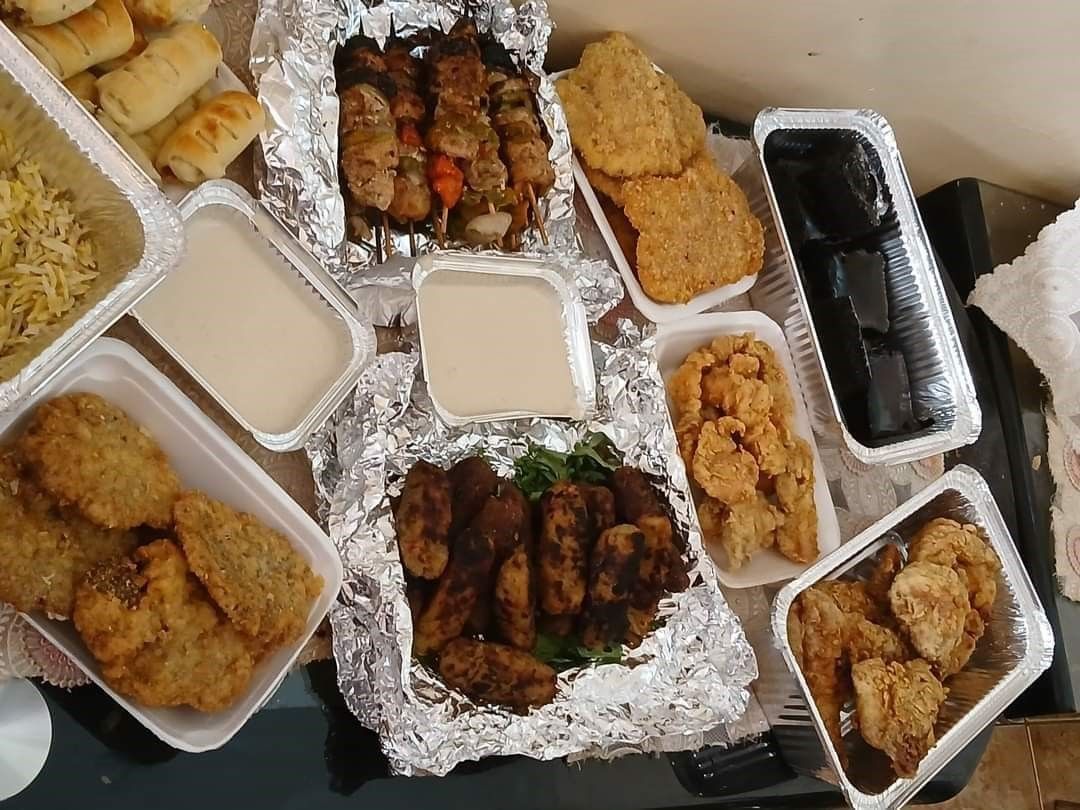
Photo of Silvana Naji's business in Omdurman, Source: Silvana Naji
Amal (a pseudonym) is a Sudanese woman and mother of six children who lost her job as a secretary in a private company in Khartoum due to the war. As her husband didn't receive his monthly pension since the war began, Amal found herself as the sole provider for her family. Faced with the absence of capital and support, Amal decided to start selling ice to provide for her family. She would sell ice daily to a number of grocery stores, earning only one dollar a day. Amal says that the stares of passersby were harsher than the weight of the ice she was selling, but this did not stop her from working. As winter approached, demand for ice decreased, putting her family at real risk in the difficult conditions. With determination and perseverance, Amal managed to save a small amount of money and started a small business selling Sudanese women's homemade perfumes.
Halima is a mother of five children living in Omdurman, AlThawra. She bore the burden of supporting her family after the death of her husband in 2021 by selling tea on the streets of the city. Halima challenged the danger of going out to work in an open street amidst the random shelling of the city during the war. In a tragic incident, one of the projectiles fell near her, resulting in the death of both her and her daughter, who had been helping her.
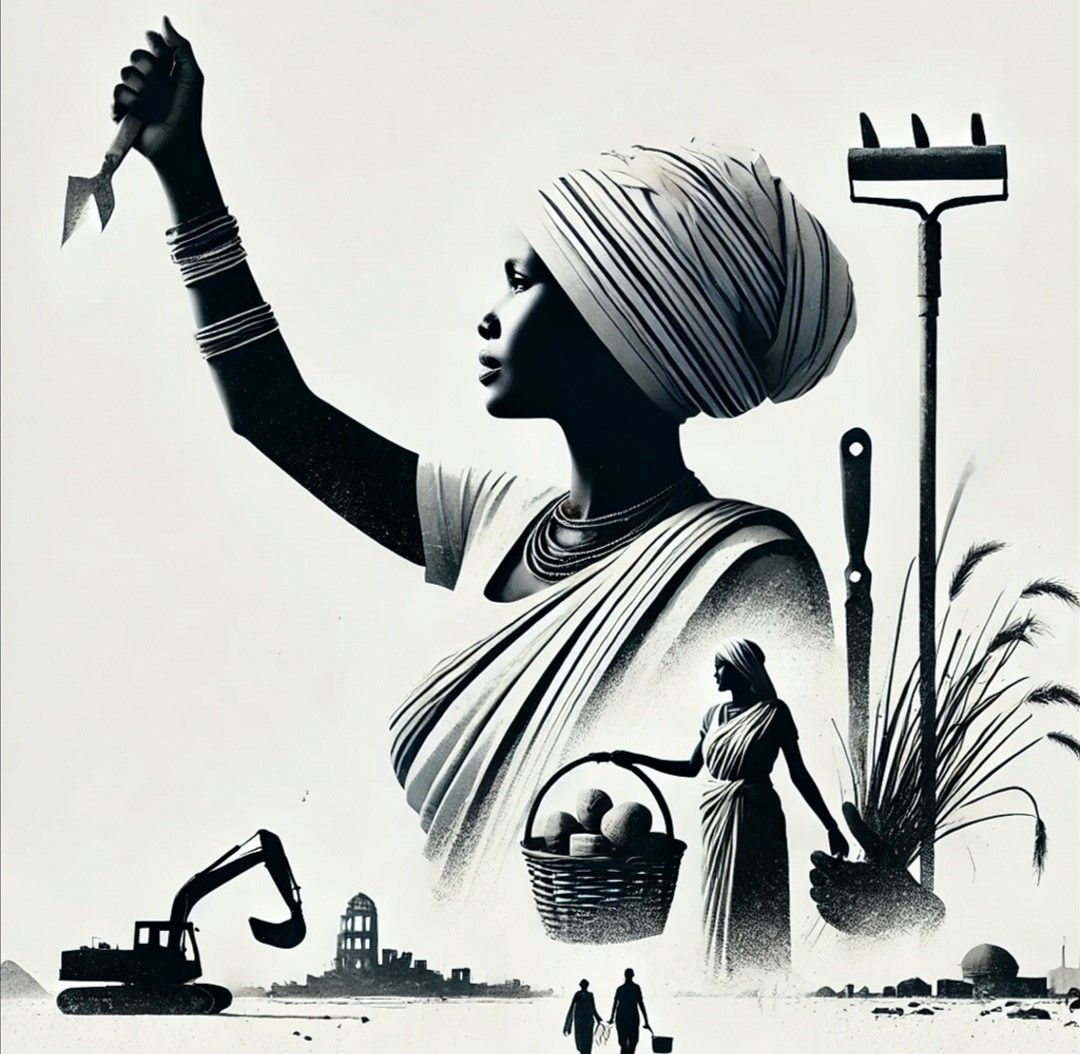
A picture demonstrating the economic empowerment of women, source: Baraa Mohammed
Strategies for Women’s Economic Empowerment in Times of Conflict:
In times of war, economic empowerment strategies for women need to combine short-term measures to meet immediate needs with long-term measures to promote sustainability and self-reliance.
First: Short-Term Strategies
Direct Cash Assistance: Provide emergency financial aid from the state government or women-supporting charitable organizations to meet the basic needs of women and their families.
Temporary Employment Opportunities: Create short-term job opportunities, such as working in relief projects or local workshops.
Rapid Vocational Training: Organize short courses in skills such as sewing, knitting, or cooking to help women generate income quickly.
Distributing Small Equipment: Provide simple equipment like sewing machines or craft tools to support small businesses that women operate.
Community Solidarity Networks: Establish small cooperative funds in neighborhoods that allow women to borrow or save initial capital for their businesses.
Second: Long-Term Strategies
Sustainable Education and Training: Provide educational programs and professional skills training that focus on handicrafts, financial management, and entrepreneurship techniques, while also promoting women’s roles in education and challenging traditional beliefs that limit the role of women as housewives only.
Support for Small and Medium Enterprises (SMEs): Provide technical and financial support to help women establish sustainable projects in areas such as agriculture, handicrafts, or trade.
Access to Financing: Establishing loan programs through banks with favorable interest rates (10% - 12%) or offer interest-free loans to encourage women’s investment.
Integration of Women into the Formal Workforce: Implement government policies that require institutions and companies to employ women and strengthen their rights in the workplace.
Capacity Building: Invest in training programs that enhance leadership, planning, and management skills for women.
Strengthening the Legal Environment: Reform policies and laws to ensure the protection of women's economic rights and enhance their participation in development.
Lessons from Conflicts in the Region
In the Somali region of Ethiopia, women have been able to build businesses and increase their resilience to climate change. With support from the World Food Programme, refugee and local women have been empowered to challenge gender roles in conservative pastoralist communities, improving livelihoods and increasing economic independence.
In Hadramaut, Yemen, women’s groups were trained to use and maintain dairy equipment, and their capacities in processing and marketing were strengthened, increasing income and improving livelihoods. This empowerment helped women cope with the economic challenges resulting from the conflict.
Syrian women have faced significant economic challenges during the conflict. Attempts by civil society organizations to address women’s exclusion from the formal economy through economic empowerment projects have had mixed impacts, highlighting the importance of adopting a critical feminist approach to ensure the efficacy of these programs.
In Libya, Arab networks for economic empowerment on women, such as (Khadija) Network, seek to promote equal opportunities and outcomes for women and men in the economic sphere, including the provision of a more inclusive business environment and supporting favorable policies.
Projects to Support Women in Omdurman
There are few local and international initiatives and efforts to support and economically empower women in Omdurman, such as training courses on how to decorate the Sudanese Toub held by a woman in Al-Thawra, Al-Hara 72, also Alaa Ahmed's workshop for making sweets and pastries, in addition to a training course on the basics of nursing held by the Sudanese Red Crescent Society in Al-Thawra Al-Hara 30.
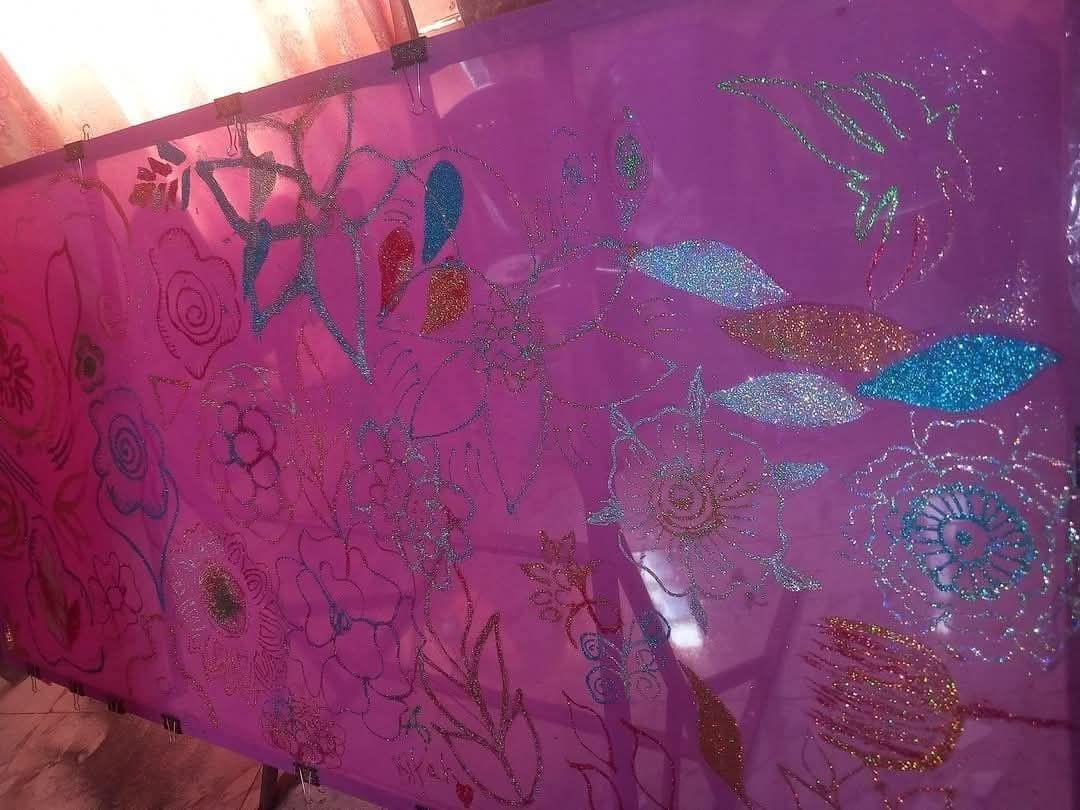
A photo of the Toub designing workshop in Al-Hara 72, Source: Umm Omnia
Conclusion
It is clear that the economic empowerment of women in Omdurman requires an integrated approach that combines urgent interventions and long-term strategies. As the conflict continues, strengthening the role of women in the economy remains not only a necessity to support them, but also a fundamental pillar of the stability of the entire society.
Government agencies such as the Ministry of Social Development and local governments can contribute by providing emergency financial support and organizing training workshops to support women in the craft and professional fields. While local organizations such as the Sudanese Red Crescent Society and women’s associations play an important role in providing social support and training for women. International organizations such as UN Women, the World Food Program and the International Labor Organization can contribute by providing funding and establishing sustainable programs to support the integration of women into the formal labor market.
The need to provide safe jobs for women in conflict areas is crucial to ensuring their physical safety and supporting their economic and social stability. In times of war, women become more likely to bear the burden of supporting families and working in dangerous environments, and the lack of security deprives them of real opportunities to improve their economic conditions. Therefore, local and international stakeholders should promote initiatives to support projects that allow women to work in safe conditions that take into account the challenges imposed by the conflict, which contributes to their economic empowerment and enhances their role in building more stable societies.